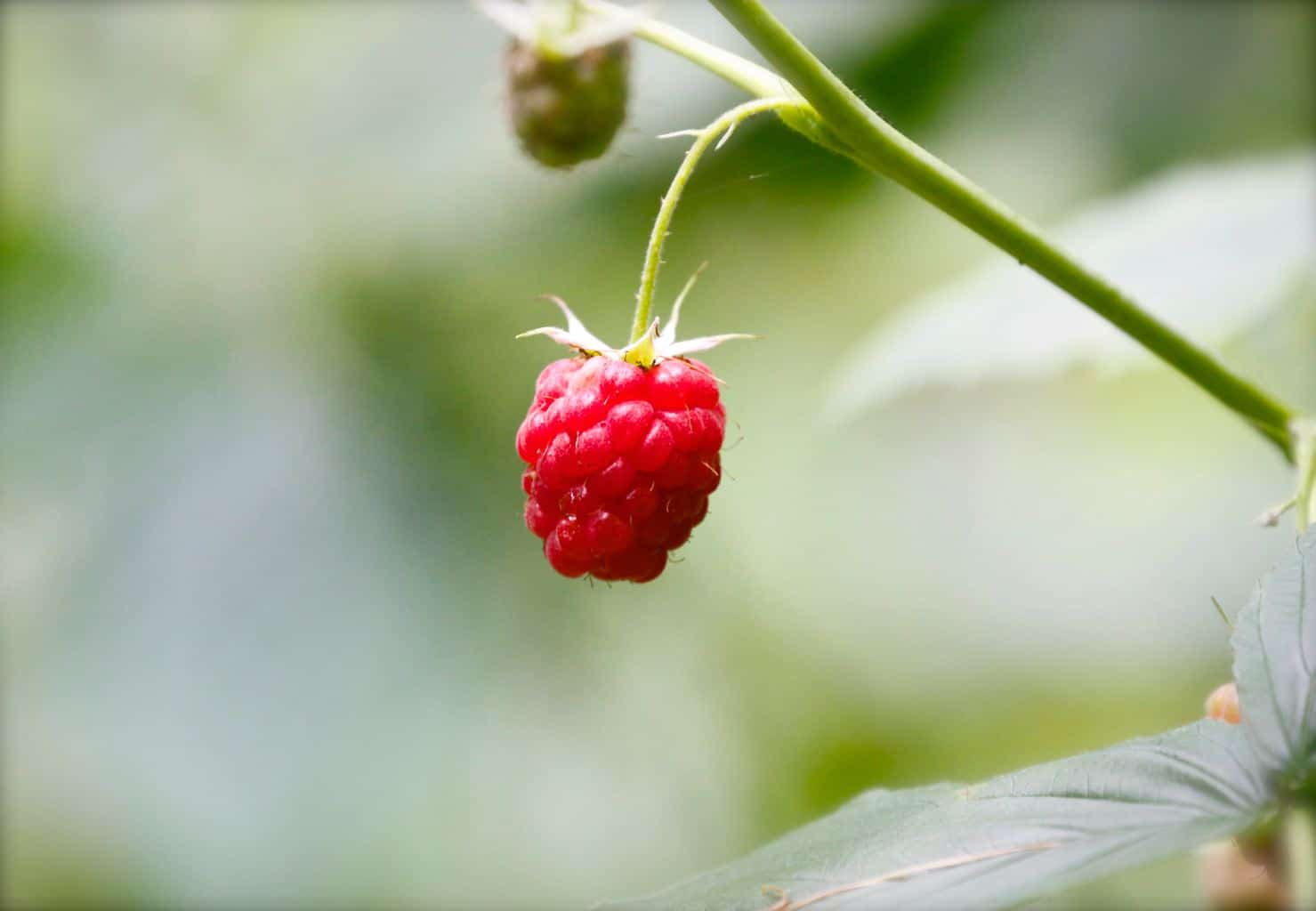- PhentermineLearn more about phentermine and how to get the most from your weight loss journey.
- ResourcesAdditional information and tools to help you make the most of your effort.
- AlternativesLearn more about the most popular weight loss medications and science-backed supplements
Can Raspberry Ketones Help You Lose Weight?
Published on December 9, 2024

Raspberries pack a **mighty punch** with goodies for our health, just like their berry relatives. They brim with antioxidants essential for keeping our engines running smoothly (1).
Losing weight is not an easy task, so supplementing the diet with specific compounds and products can help lose excess pounds. In addition to potent antioxidant activity, raspberries have become a very popular dietary supplement for weight loss around the world (2). People who want to achieve a firm and slim body choose the raspberry ketones.
Natural raspberry ketones promote metabolism, keep the appetite under control and affect melting fat (3). Like all the other ingredients found in fruit and vegetables, raspberries contain many healthy substances, including anthocyanins, vitamin C and beta-carotene. Let’s learn more about what raspberry ketones are.
What are raspberry ketones?
Raspberry ketones have been in use since 1965 when the FDA confirmed their weight loss role and marked them as safe and effective dietary supplements (4). Ketones are one of the raspberry ingredients that provide them with a unique scent. Raspberry ketones are similar to synephrine (5), an ingredient found in bitter orange (Citrus aurantium). Synephrine is used as a supplement to many weight loss products because it is a great fat burner.
Furthermore, synephrine is structurally similar to ephedrine, a substance known to improve thermogenesis. This is a process in which our body burns calories and converts them into energy. Synephrine acts as a beta-3 receptor in fat cells. Because of this similarity with synephrine, ketone-rich foods and products are excellent weight loss agents.
Raspberry ketones are chemical substances obtained by extraction from red raspberries which we usually consume during the summer. These ketones also support liver function. Studies have shown that they can promote liver health by cleaning it from toxins and harmful fats which come from sources other than alcohol (6). Let’s not forget that a clean liver is responsible for the metabolism of fat and toxins in our body. In this way, a healthy liver can perform its function and help our body get rid of fat deposits.
It is interesting that a kilogram of fresh raspberries is required to prepare around four milligrams of pure ketones! This is the reason why raspberry ketones are one of the most expensive natural weight loss supplements.
How does it work?
Scientists have found numerous exciting and fascinating ways in which nature takes care of our health and well-being. It is right for raspberries as well.
Raspberry ketones contribute to body weight control, help maintain fatty tissue healthy ratio in our body, and promote fat metabolism (5). Raspberry ketones also help us get rid of the stress and live a more relaxed life. This also helps establish a healthy metabolism and lose weight when we want it.
The principal ways in which raspberry ketones for weight loss work are:
- They clean the liver,
- They regulate fat metabolism (help degrade fat),
- They suppress appetite,
- They increase the release of norepinephrine,
- They affect enzyme lipase,
- They increase hormone adiponectin levels,
- Raspberry ketones stimulate thermogenesis.
Let’s take a look at each of these mechanisms to understand how raspberry ketones for weight loss work.
1. Liver cleansing
Raspberry ketones have a healthy liver cleansing effect (6). This plays a vital role in the metabolism of fats and toxins. A healthy liver is like a cleaning factory that increases insulin sensitivity, promotes fat metabolism and protects the heart and blood vessels. Therefore, raspberry ketones have beneficial effects on weight loss and help relief obesity disorders.
2. Degrading fat and increasing metabolic rate
It is very fascinating how raspberry ketones interact with fat. There are three key ways:
- Trigger and increase burning of existing fat,
- Inhibiting the absorption of new fat,
- “Bonding” or “sticking” to fat and getting rid of it.
The use of raspberry ketones proved to be interesting after having shown that people who consume high-fat content and raspberry ketones at the same time are not gaining weight. Also, studies have shown that raspberry ketone very successfully reduces subcutaneous fat and chondrocyte fat around the belly and waist. Furthermore, it protects against the development of fatty liver. The raspberry ketones naturally stick to fat cells and help our body get rid of them (5).
They also increase the metabolic rate of fat and accelerate our metabolism (7). It is well-known that a healthy metabolism is one of the critical factors in weight loss.
3. Suppressing appetite
Raspberries themselves, in their natural form, have an appetite suppressant effect (8). This is why consumption of raspberry ketones has similar results in humans.
4. Increasing the release of norepinephrine hormone
Raspberry ketones increase the release of norepinephrine hormone (9). This hormone stimulates lipolysis. Lipolysis involves triglyceride separation to the glycerol molecule and three specific fatty acids. Once the fatty acid diffuses from the adipocytes, it binds to the plasma of albumin (a blood protein) which is then delivered to the active tissues. Once it gets there, it can be used as energy.
This is very important for losing body fat. Fatty acids must be burned. Therefore, raspberry ketones accelerate the degradation of fat deposits to energy by stimulating norepinephrine hormone release.
5. Relation to the enzyme lipase
The raspberry ketone acts on the enzyme lipase, which is responsible for the release of fatty acids and the discharge of fat cells in the fat burning process (10). Simply put: ketones increase the effects of exercise in active people and enhance the process of conversion of fat deposits to energy in people who do not exercise or cannot exercise as much.
6. Increasing the level of adiponectin
Have you heard of the “skinny hormone”? Scientifically speaking, it is the hormone adiponectin. Research has shown that people who are naturally thin have higher levels of this hormone than other people do. These people are much more likely to consume the foods they consume and turn them into energy faster.
Those who are prone to obesity have a deficiency of this hormone, so they tend to accumulate fat deposits because the food they consume does not turn into energy.
Raspberry ketones affect the secretion of adiponectin, a hormone that manages the metabolism of fatty tissue and positively impacts the immune system (3).
Besides, adiponectin also benefits the immune system and has a protective, anti-inflammatory role. As increased body weight decreases the production of adiponectin, raspberry ketone intake has a significant effect on increased body weight.
7. Stimulating thermogenesis
Consumption of raspberry ketones stimulates thermogenesis, which increases the formation of brown fatty tissue (11). Brown fatty tissue is the so-called “good” fatty tissue. Scientists believe that it helps people in preventing excessive weight build-up. Dietitians, nutritionists, medical doctors, endocrinologists, and other scientists now believe that obese people are perhaps dealing with that problem just because they lack brown fat cells and cannot burn all the calories.
What about natural raspberries?
Whenever we talk about natural foods that suppress appetite, degrade fat or affect digestion, many people wonder why they cannot merely increase the intake of these foods on a daily basis, in their fresh, natural form.
When it comes to raspberry ketones specifically, to benefit from it, you would have to consume at least 200 mg of ketones. You should consume about 40 kilograms of raspberries a day to get that many ketones!
When to avoid it?
Are raspberry ketones and their supplements safe for use? In the sixties of the past century, raspberry ketones were declared safe for use by the FDA. However, the assumption was that no one would consume more than two milligrams a day. The animals in those studies received much higher doses – in some cases, the amount was up to 2% of their body weight!
Of course, people can take a much more significant amount than just two milligrams. Ketone dietary supplements usually contain 50 to 250 mg raspberry ketones (12).
Unfortunately, there are still not enough studies about the safety of prolonged consumption of raspberry ketone dietary supplements. Some scientists and researchers express their concerns about the safety of using raspberry ketone supplements because this compound chemically looks like the stimulant called synephrine.
Due to the lack of large-scope research related to raspberry ketone effects specifically, scientists rely on a theory that it could cause side-effects identical to or similar to synephrine. Those include:
- feelings of jitteriness,
- increase blood pressure,
- a sudden drop in blood sugar level,
- rapid heartbeat,
- heart palpitations (heart pounding) (13).
There are two conditions that require special attention when it comes to consumption of raspberry ketone products. Those are:
- Pregnancy and breastfeeding
- Diabetes.
1. Pregnancy and breastfeeding
Pregnancy is a condition which requires special attention and staying away from any substances that are not proven to be harmless. As there is not enough proof and reliable information on the possible side effects of consuming raspberry ketone (14), it is highly recommended to avoid products based on this substance during both pregnancy and breastfeeding.
2. Diabetes
Raspberry ketones are identified as substances that lower blood sugar levels. Even though there are not enough experimental research studies and proofs, theory shows that raspberry ketone could lead to a significant drop in blood sugar levels of diabetic patients who are already taking diabetes medications. If their blood sugar levels drop too low, this state can be dangerous (15).
Final Words
Raspberries are a healthy, delicious, marvelous and nutritious fruit rich in antioxidants that have scientifically proven benefits for humans. It has definitely proven benefits related to weight loss. Raspberry ketones, however, are not yet very much explored (14).
However, all of the possible side effects are not yet discovered. Pregnant ladies, breastfeeding women, and diabetic patients should avoid consuming raspberry ketones. Others can consume products based on this substance with caution and prior consultation with their medical care specialist.
References:
(1) https://www.medicalnewstoday.com/articles/283018.php
(2) https://www.todaysdietitian.com/newarchives/090112p80.shtml
(3) https://etd.ohiolink.edu/!etd.send_file?accession=oduhonors1430845300&disposition=inline
(4) http://www.marketwired.com/press-release/raspberry-ketone-pure-supplement-helps-individuals-achieve-their-health-weight-loss-1752698.htm
(5) https://www.researchgate.net/publication/7874790_Anti-obese_action_of_raspberry_ketone
(6) https://www.ncbi.nlm.nih.gov/pmc/articles/PMC3338106/
(7) https://www.ncbi.nlm.nih.gov/pmc/articles/PMC4717884/
(8) https://familylivingtoday.com/best-appetite-suppressants/
(9) https://werdsmith.com/rogerholoman/zPdcPYuPD
(10) https://www.brilliantways.com/pages/raspberry-ketones
(11) http://pwlclincoln.com/raspberry-ketone-fat-burner-in-a-bottle/
(12) https://examine.com/supplements/raspberry-ketone/
(13) https://www.webmd.com/vitamins/ai/ingredientmono-1262/raspberry-ketone
(14) https://www.sciencedirect.com/science/article/pii/S2352364615300493
(15) https://www.healthline.com/health-news/can-ketone-products-help-people-with-diabetes#1


